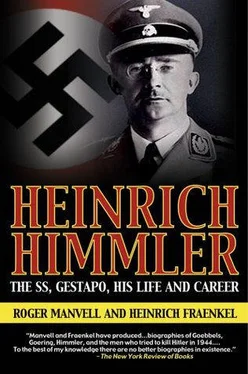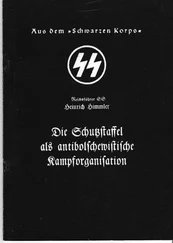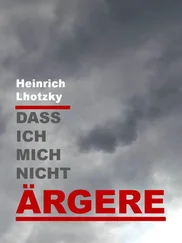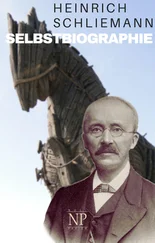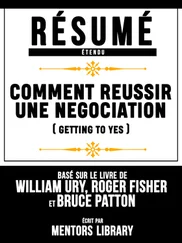Doenitz, surprised and alarmed, sent a loyal message back to the Leader he did not know was dead. ‘If Fate… compels me to rule the Reich as your appointed successor, I shall continue this war to an end worthy of the unique, heroic struggle of the German people’, he said in the stifled language of loyalty. One of the three copies of Hitler’s testament, signed at four o’clock in the morning of the previous day and witnessed by both Goebbels, the new Reich Chancellor, and Bormann, was already on its way. A special messenger had left the Bunker at noon on 29 April, but was, in fact, never to reach Doenitz at Ploen.
Meanwhile, Bormann and Goebbels, without any reference to their new Führer, were trying during the night of 30 April to make favourable terms with the Russian commanders. Bormann sent another evasive signal to Doenitz saying he would try to join him at Ploen and adding that ‘the testament is in force’. It was Goebbels who finally sent Doenitz an explicit signal at 3.15 in the afternoon of 1 May, telling him of Hitler’s death twenty-four hours after it had happened. He named the principal ministers in the new government, but made no mention of Himmler, or of the fact that he and his wife were preparing to die that night after killing their sleeping children.
Himmler no longer found himself welcome at Ploen. His exclusion from any form of office was a severe shock to him, and Doenitz did not hide his disapproval of Himmler’s attempts to negotiate with the Allies. Schellenberg travelled through the night of 30 April along the roads blocked with army transport and refugees only to find Himmler at his new headquarters at the castle of Kalkhorst, near Travemunde. He had just gone to bed. It was then four o‘clock in the morning of 1 May. He learned from Brandt what had happened and of Himmler’s despair after a late-night conference with Doenitz, during which he had proposed himself as second Minister of State. 11Doenitz had evaded this offer, though he was still afraid Himmler might use his police escort to regain his lost power. Himmler, says Schellenberg, was ‘playing with the idea of resigning, and even talking of suicide’.
At breakfast the following morning he was ‘nervous and distracted’, and in the afternoon they went together to Ploen. Schellenberg by now was solely concerned to please Bernadotte. He planned to use Himmler’s remaining influence to secure from Doenitz a peaceful solution to the German occupation of the Scandinavian countries. By this means he felt he would earn the gratitude of the Allies and secure his own future when he took refuge in Sweden. Himmler, anxious to be present at the conferences called by Doenitz, was prepared to support the peaceful withdrawal of German forces from Norway. He also admitted to Doenitz that he had in fact been attempting to secure peace through Sweden. This finally discredited him in the eyes of the Grand Admiral. 12
May Day saw the beginning of the surrender of Germany. Mohnke, the commander of Himmler’s S.S. regiment which he had sent to cordon Berlin, was captured by the Russians while attempting to escape from the Bunker; at ten o’clock that night a broadcast from Berlin proclaimed officially that Hitler was dead. Kesselring surrendered in north Italy and, on 2 May Doenitz began the first stages of his own surrender to Montgomery without any further consultation with Himmler. Kaufmann, the Gauleiter of Hamburg, in spite of the order he had received, opened up the city to the British forces.
Meanwhile Himmler maintained the façade of power, and it was still formidable. Accompanied by his escort of S.S. men, he moved around in his Mercedes like some medieval warlord. While he was preparing to follow Doenitz on 1 May to Flensburg, on the borders of Schleswig-Holstein and Denmark, he received an unexpected offer from Léon Degrelle, the renegade commander of the Belgian and French fascists enrolled in the Waffen S.S., who had retreated from the Russian front with what was left of his men. 13
Degrelle was determined to make a bold finish to his fighting career in the eyes of Himmler, who no longer wanted to see him, though he was quite prepared to add his men to the diminishing forces at his command. He sent word to Degrelle to join him at Malente, near Kiel, and on the way the Belgian commander in his Volkswagen powered by potato schnapps caught up with the Reichsführer S.S. driving at the head of his column of Mercedes and lorries. Himmler, wearing a crash-helmet, was driving his own car, and they broke the journey at Malente. By now Degrelle had little to offer his leader; the Belgian S.S. units had scattered to Denmark. Himmler’s sole concern was to keep up with Doenitz, and Degrelle followed the fleet of cars and lorries on the journey north to Flensburg.
As they were approaching Kiel, a daylight raid began. Himmler kept calm and shouted, ‘Discipline, gentlemen, discipline’, as his staff, both men and women, dived for safety in the mud, in which the girls had the shoes sucked from their feet. Degrelle left the scene as the officers and their aides struggled back with their vehicles after the raiding planes had gone. He went directly north through Kiel while Himmler’s convoy retreated in search of some less hazardous route to Flensburg.
That night Himmler was joined on his journey by Werner Best from Denmark. 14They sat together in the Mercedes which Himmler still drove, and they spent the tedious hours of travel in talk. They were frequently held up by air-raids and did not reach Flensburg until early in the morning of 3 May.
Himmler, as always, was careful what he said. Hitler had not been quite himself, he admitted, during the past six months, and Bormann had increased his hold over him. He had issued Himmler with impossible commands on the Russian front and had refused even to discuss the idea of peace. On the other hand, Himmler said he was certain that if he had been allowed to have only half-anhour’s conference with Eisenhower he could have convinced him of the necessity of joining forces with the Germans to drive back the Russian invaders. Before they parted in the morning, Best said he was going back across the Danish border before his appointment with Doenitz later that day.
‘But what are you going to do yourself, Reichsführer?’ asked Best.
‘I don’t yet know’, was all Himmler could find to say, but he asked Best to take the S.S. women staff with him over the nearby border into Denmark, where they would be able to wash and get themselves food before returning to their duties.
Himmler’s indecision was shown even more in a conversation he had with Schwerin-Krosigk, who had become Foreign Minister in the place of Ribbentrop and therefore retired to Flensburg. 15He discovered Himmler in a mood of despair, an unwanted adviser at the headquarters of the new Führer.
‘Graf Schwerin, what ever is to become of me?’ he asked.
Schwerin-Krosigk did not know what was to become of anyone; Germany scarcely had need of a Foreign Minister. It seemed to him that to help organize the evacuation of Germans from the east was the only practical thing they could do for the moment. But he tried to give a serious answer to Himmler’s question.
‘As I see it, there are three courses open to you’, he said. ‘The first is to shave off your moustache, disguise yourself in a wig and dark glasses, and try to disappear altogether. I expect, even so, you would soon be discovered, and your end would scarcely be glorious. The second course is to shoot yourself, though as a Christian I can’t advise you to do this; you would have to decide such a thing for yourself. What I really recommend is the third course: drive straight to Montgomery’s headquarters and say, ‘I am Heinrich Himmler, I want to take full responsibility for everything the S.S. has done.” As to what will happen then, who can say? But if it proves the end for you, it will at least be the most honourable way out.’
Читать дальше
